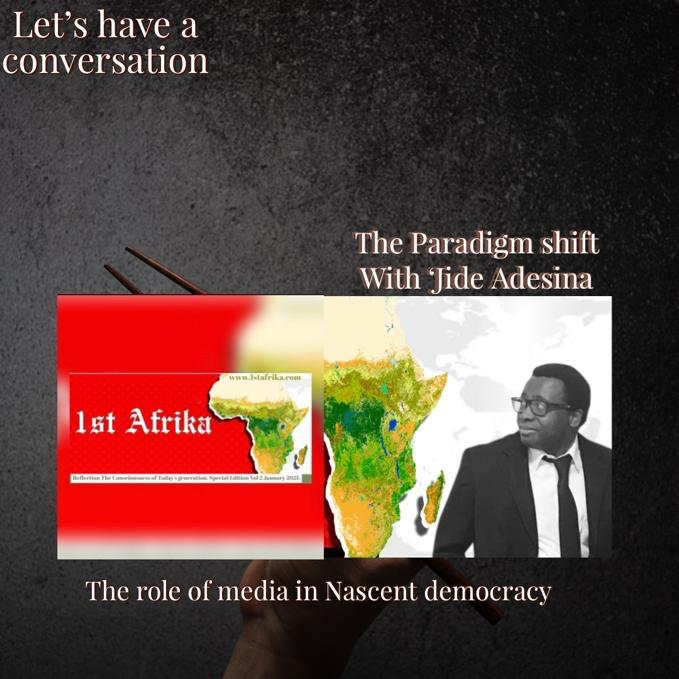The Role and Impact of Africans in the 2024 UK Elections
with Jide Adesina
The Paradigm Shift

The 2024 UK general elections come at a critical juncture for the African community in the United Kingdom. With a significant population of African immigrants and African-descended UK citizens, their participation and influence in these elections are more crucial than ever. This article delves into the political narrative, highlighting key issues such as immigration, reparations, and economic benefits to Africa. It also emphasizes what Africans in the UK should vote for on the ballot and what should be their mandate going to the polls.
Africans make up a significant portion of the UK’s population. According to the Office for National Statistics, as of the latest census, there are over 2 million people of African descent in the UK. This demographic is not monolithic; it includes people from various African nations with diverse cultures, languages, and experiences. This diversity is both a strength and a challenge when it comes to political mobilization and representation.
One of the most pressing issues for the African community in the UK is immigration policy. Over the past decade, immigration has been a contentious topic in British politics, with successive governments implementing increasingly restrictive measures. For many Africans, these policies have led to prolonged uncertainty, family separations, and difficulties in securing legal status.
 The Windrush scandal, which saw many Caribbean migrants wrongfully detained, denied legal rights, and threatened with deportation, has had a profound impact on the African community. It has highlighted the precarious position of immigrants and the need for comprehensive immigration reform. The African community should advocate for policies that provide a clear and fair path to citizenship, protect the rights of immigrants, and address the injustices of the past.
The Windrush scandal, which saw many Caribbean migrants wrongfully detained, denied legal rights, and threatened with deportation, has had a profound impact on the African community. It has highlighted the precarious position of immigrants and the need for comprehensive immigration reform. The African community should advocate for policies that provide a clear and fair path to citizenship, protect the rights of immigrants, and address the injustices of the past.
Reparations for slavery and colonial exploitation have become a significant issue within the African and African-descended communities in the UK. The legacy of slavery and colonialism has left deep economic and social scars, and there is a growing movement calling for reparative justice.
The UK has a complex history with Africa, marked by colonization, exploitation, and the transatlantic slave trade. Advocates argue that reparations are not just about financial compensation but also about acknowledging historical injustices, making amends, and addressing the ongoing impact of these injustices on African communities.
In the 2024 elections, Africans in the UK should support candidates who are committed to exploring reparations and who acknowledge the historical debt owed to African nations and their descendants. This includes supporting policies that address racial inequalities, provide educational and economic opportunities, and promote cultural recognition and respect.
The economic relationship between the UK and Africa is another crucial issue. Historically, this relationship has been characterized by exploitation and unequal exchange. However, there is potential for a more equitable and mutually beneficial partnership. The African community in the UK can play a vital role in advocating for policies that promote fair trade, investment in African economies, and support for sustainable development.
For instance, the UK’s trade policies with African nations should be scrutinized to ensure they are fair and do not exploit African resources or labor. Additionally, there should be support for initiatives that promote technology transfer, capacity building, and infrastructure development in Africa. These measures can help create jobs, reduce poverty, and foster long-term economic growth on the continent.
As Africans in the UK head to the polls, it is essential to consider the following key issues
Immigration Reform: Support candidates who advocate for comprehensive immigration reform that provides a clear path to citizenship, protects the rights of immigrants, and addresses past injustices.
Reparations and Racial Justice: Vote for candidates committed to exploring reparations for slavery and colonialism, and who support policies that address racial inequalities and promote social justice.
Economic Partnerships with Africa: Choose candidates who advocate for fair trade policies, investment in African economies, and support for sustainable development initiatives.
Healthcare and Education: Support policies that improve access to healthcare and education for African communities in the UK, addressing disparities and promoting equality.
Community Representation: Vote for candidates from within the African community or those who have a proven track record of supporting African issues and advocating for minority rights.
The Mandate Going to the Polls
The mandate for Africans in the UK going to the polls should be clear: advocate for justice, equality, and economic empowerment. This involves:
Mobilizing the Community*: Ensuring high voter turnout within the African community by organizing voter registration drives, educational workshops, and community discussions about the importance of voting.
Holding Politicians Accountable: Engaging with candidates and elected officials to ensure they follow through on their commitments to address the issues important to the African community.
Building Alliances: Forming coalitions with other minority groups and progressive organizations to amplify their voice and influence in the political arena.
Promoting Civic Engagement: Encouraging ongoing political participation beyond the elections, including involvement in local government, community boards, and advocacy groups.
The 2024 UK general elections are a pivotal moment for the African community in the UK. By actively participating in the political process, Africans can help shape a future that is just, equitable, and prosperous for all. This involves not only voting but also advocating for comprehensive immigration reform, reparations, and fair economic partnerships with Africa. The African community’s mandate should be to seek justice, equality, and empowerment, ensuring their voices are heard and their issues addressed in the political landscape of the UK.
By : Jide Adesina


